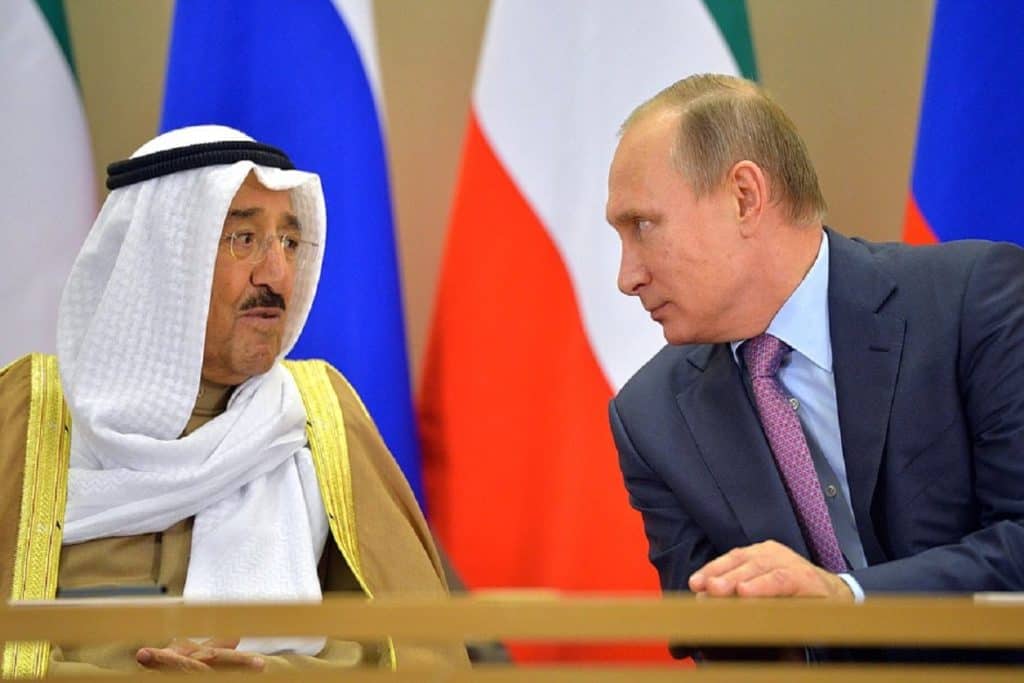By Denis Korkodinov
Kuwait seeks to involve Russia in the process of resolving the conflict in Yemen. Kuwait’s foreign minister, Khalid Al-Jarallah, has high hopes for Moscow, commending her opportunity for both the Hussites and the government of Hadi in Sana’a. However, the presence of a number of unresolved problems between countries gives Russia the right to demand the fulfillment of its conditions.
Kuwait’s desire to enlist the support of the Kremlin in the Yemeni confrontation is a clear indication that Washington’s influence in the Middle East is rapidly diminishing. Otherwise, the emirate would formally request mediation from the White House administration. Meanwhile, Kuwait, turning to Moscow, is sending the United States an unequivocal signal that the emirate intends to diversify the international unions formed with its participation, strengthening its relations with Russia and China. In other words, Kuwait demonstrates its desire to pursue a foreign policy independent of Washington, ensuring a balance of interests on the world stage.
However, despite the fact that the emirate is ready for a strong friendship with Moscow, at present there are significant obstacles between the countries that complicate the process of forming an alliance. In particular, the history of Russian citizen Maria Lazareva, convicted by a Kuwaiti court for 10 years on charges of corruption, clearly hinders the strengthening of Russian-Kuwaiti relations.
According to competent sources, the client of the prosecution of Maria Lazareva may be Sheikh Yousef Al-Abdullah, who holds the post of head of the administration of the ports of Kuwait, as well as her older brother, Sheikh Khaled Al-Abdullah, who heads the administration of the Supreme Amir, who intended to discredit the Russian economic participation in the Gulf countries.
Maria Lazareva was sentenced to 10 years in prison for a period of 10 years in the Kuwaiti prison of Suleybiya. Russia has repeatedly drawn the attention of the Emirate to the unjust punishment of a businesswoman, pointing to the political commitment of the court verdict against her. On May the Court of Appeal of Kuwait has decided to release her from prison, but she cannot leave the country.
Against the background of attempts to bring together the positions of Kuwait and Moscow in Yemen, the Kremlin is likely to once again insist on the immediate release and return in Russia of Maria Lazareva. And, apparently, the Emir of Kuwait Sabah IV may have concerns related to the fact that in case of refusal to release Maria Lazarev, Moscow is more likely to support forces in Yemen that are different from those supported by Kuwait. And then quality superiority in Sana’a will be on the side of the opponents of the emirate.
Under these conditions, it is likely that Kuwait may decide to refer the case to Maria Lazareva for retrial or release it. However, in this case, the main task of Kuwait is to emphasize in the international arena the special symbolism of the “goodwill act” of the great emir. In this regard, certain changes in the case of a Russian businesswoman may occur on Kuwait’s Independence Day, which will be celebrated on June 19.
(The opinions expressed in this article are solely those of the author and do not necessarily reflect the views of World Geostrategic Insights).
Image Credit: en.kremlin.ru







